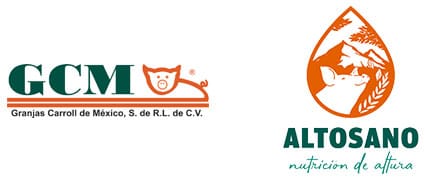SFD H1N1 BIOSECURITY POLICY
H1N1 Biosecurity Policy
Smithfield International Group Live Production
This reminder H1N1 Policy is provided for guidance and communication to your management team. Remember that H1N1 is a human disease and not present in our pig herds, but that pigs can contract the virus from humans. The protocol is further intended that in the event a herd does contract the virus, we have procedures to limit the spread and its impact on our business.
1. External Biosecurity Measures:
a. Look for ways to limit the number of external source contacts to the site
i. Make sure all visitors have the attending veterinarian’s approval
ii. Make sure all visitors sign in to the Site’s Entry Log book, filling out the form completely
iii. This applies to everyone except the direct daily farm staff
b. Prevent sick people from entering the farm site
i. Do not allow people exhibiting flu-like symptoms to enter your facility
ii. If people who have developed illness, or those that report contact with others who have developed illness must enter the facilities, require their use of properly fitted, valveless N95 respirators, gloves and other personal protective equipment while on the farm and limit their contact with the animals
c. Implement a shower-in, shower-out policy where possible for all people entering the facility. If not possible, require that all people entering the facility wash their hands and arms with warm water and soap before entering the facility
d. Require the use of freshly cleaned farm-specific clothing and footwear for all people entering the facility
e. All objects and supplies entering the farm must be disinfected with appropriate external packaging removed upon entry according to normal farm procedures
2. Internal Biosecurity Measures to Live By:
a. Keep freshly cleaned farm-specific clothing and foot ware available at all times
b. If your clothing and foot ware becomes heavily dirtied throughout the day, change into fresh cleaned clothing and boots
c. Encourage all people to wash their hands and arms frequently while on farm using soap and clean drying towels, including before and after handling pigs, before eating, or smoking or touching their faces, mouths, eyes or noses
d. Encourage all people to use hand sanitizer following hand-washing
e. Keep your hands away from your face!
f. Follow the company’s sick leave policy for all employees
i. Especially for those who have developed influenza-like symptoms, such as a fever, cough, body aches and sometimes vomiting and diarrhea.
ii. Recommend that all persons experiencing respiratory illness seek medical care
g. Prevent farm staff exhibiting flu-like symptoms from entering swine facilities for at least seven days after they begin signs of respiratory illness, even mild ones
h. Farm staff diagnosed with influenza should be restricted from entering swine facilities for at least seven days after the start of their illness, or until symptom free for 24 hours
i. Properly adjust and maintain ventilation to minimize the spread of the virus.
j. All farm staff and visitors are to utilize personal protective equipment when possible
k. All direct farm staff are encouraged to be vaccinated against the seasonal influenza virus to help prevent human infections from seasonal human influenza strains. When novel H1N1 vaccine becomes available for the general public, workers should be encouraged to get vaccinated
3. Perform daily observations of all of the animals in your care to assess the health of the animals on the farm and all of the animals transported to other sites or to market.
4. If you suspect influenza in pigs, contact your swine veterinarian immediately
a. Rapid detection of the illness may help reduce the spread of the virus to other swine herds
b. Prompt confirmation of a pig infection with the novel H1N1 flu virus diagnosis on a farm will likely require that specimens (nasal swabs) or tissue samples be sent to a veterinary diagnostic laboratory. This should be done by a veterinarian or under direction of a veterinarian
c. Describe the flu-like symptoms you have observed in the pigs
d. Describe the number and age/weight of the pigs affected
e. Inform the veterinarian if the affected animals have received or are receiving any type of animal health product or treatment
f. Report if anybody who has had contact with the affected animals has developed flu-like symptoms
5. If animals on your farm are confirmed positive to the H1N1 influenza virus:
a. Require use of safety goggles, gloves and properly fitted N95 respirators by all persons working with animals that have signs of illness
b. Follow your herd veterinarian’s recommendations of treatment and isolation of the clinically affected or at-risk animals
c. Isolate affected groups if possible and do not share equipment between affected groups and other animals
d. Implement a program so workers caring for animals developing illness do not have contact with other animals
i. If not possible, have workers caring for sick animals work with the ill animals at the end of the day and have them shower and change clothing before working with animals that do not have signs of illness
e. Ensure that only animals that have recovered are sent to market
f. Take steps to prevent the spread of the virus to other operations or unaffected groups
g. Consider your options before moving the affected groups/lots even within the farm
6. Contact your medical care provider if anybody develops flu-like symptoms
Above all: Use Common sense basic hygiene procedures at all times!


